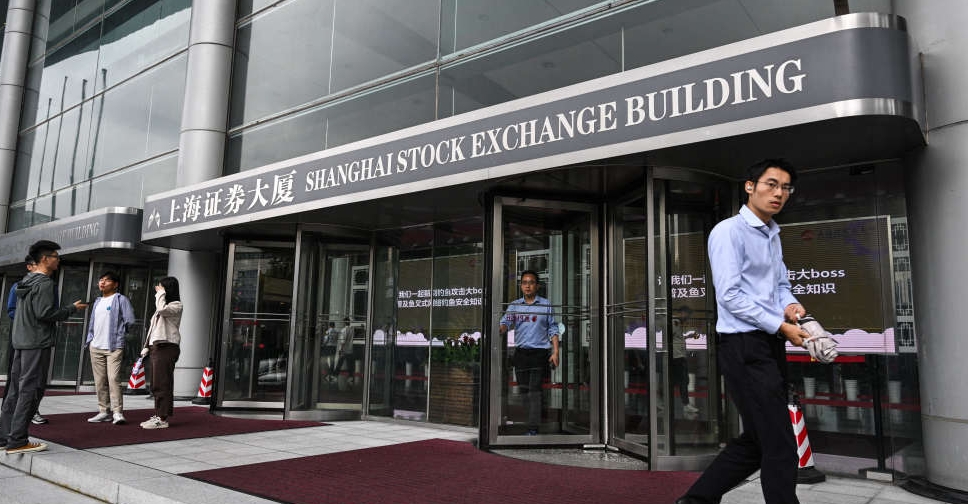
Chinese stocks dipped on Tuesday, the final trading day of 2024, but were on track for their first annual gain following an unprecedented three-year decline, while Hong Kong shares also ended the year higher.
The blue-chip CSI 300 Index tracking the biggest companies listed in the cities of Shanghai and Shenzhen, rose 15.9 per cent in 2024, snapping a losing streak since 2021 set off by the COVID-19 pandemic, property sector woes, and weak consumer confidence.
The Shanghai Composite Index gained 13.9 per cent in 2024, ending a two-year decline, while Hong Kong's benchmark Hang Seng Index closed the year's final session up 0.1 per cent, for an annual gain of 17.9 per cent that ended four consecutive years of losses.
"Within the equities markets, China’s performance came as a positive surprise to many investors," analysts at Value Partners said in a note this week.
"Various supportive measures announced during the second half of the year, which targeted monetary policy, the property market, and capital markets, largely surpassed expectations and overshadowed ongoing economic concerns."
With an advance of 36 per cent, banking stocks led the onshore market gains this year, as the four largest state banks reached multi-year highs.
The chip sector surged 54 per cent as domestic investors boosted holdings in local semiconductor makers amid tightening US chip restrictions.
However, mainland stocks weakened on the year's final trading day, with the CSI Index falling 0.6 per cent after data showed China's factory activity expansion slowed in December amid rising trade risks.
The market is in the final phase of "policy expectation-driven" trading, following Chinese leaders' key meetings this month, Dai Qing, a strategist at Changjiang Securities, said in a note.
Looking ahead to 2025, dividend-paying stocks could still outperform the broader market in the short term, especially when US President-elect Donald Trump's January inauguration may bring market disruptions, he added.

 Nasdaq set to confirm bear market as Trump tariffs trigger recession fears
Nasdaq set to confirm bear market as Trump tariffs trigger recession fears
 Dana Gas and Crescent Petroleum exceed 500M boe in Khor Mor field
Dana Gas and Crescent Petroleum exceed 500M boe in Khor Mor field
 China to impose tariffs of 34% on all US goods
China to impose tariffs of 34% on all US goods
 Shares bruised, dollar crumbles as Trump tariffs stir recession fears
Shares bruised, dollar crumbles as Trump tariffs stir recession fears
 Wall Street futures sink as tariffs fuel recession fears
Wall Street futures sink as tariffs fuel recession fears




